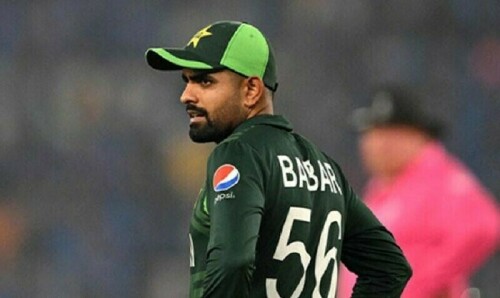DUBAI: The head of world cricket’s anti-corruption body on Wednesday stressed education for young players as the key to stamping out the scourge of fixing and said success should be measured by prevention — not prosecutions.
Cricket has battled for years against those seeking to rig both the overall outcome of matches and specific incidents within them, known as spot-fixing.
The International Cricket Council (ICC) set up its Anti-Corruption Unit (ACU) in 2000 after three international captains — Hansie Cronje of South Africa, Pakistan’s Salim Malik and India’s Mohammad Azharuddin — were banned for life for match-fixing.
Corruption reared its head again in 2010 when three Pakistani players were jailed and given long bans over a spot-fixing scandal in a Test against England.
With big-money Twenty20 leagues springing up around the world, attracting billions of dollars in illegal betting, the challenge remains enormous.
ACU chairman Ronnie Flanagan said the ICC’s goal was not just to catch the crooks but to stop the problem at source.
“The main planks of our activity are prevention, disruption and only then investigation and prosecution -- in that order of priority,” said Flanagan in an interview released by the ICC. “Education of players, particularly young players, is absolutely crucial to make them aware of the evil intent of people out there who would seek to have them drawn into their clutches and who would seek to corrupt them.”
Flanagan, formerly one of Britain’s most senior police officers, said cricket’s approach was admired and imitated by other sports trying to wipe out rigging.
“We shouldn’t be judged by the number of prosecutions which has been engaged in,” Flanagan said. “We should be judged by the level of prevention we are able to bring to bear, and I think that’s a very positive story.”
The ICC met recently to chart the next stages of its strategy, but Flanagan warned corruption could probably never be wiped out completely.
“Will ill-health ever be eradicated? Will crime ever be eradicated? And I think the frank answer has to be never totally and absolutely eradicated,” he said. “But that doesn’t stop us working the very hardest that we can.”
Flanagan however added that fans should be reassured that administrators are doing ‘everything humanly possible’ to stop illegal practices such as match-fixing.
“I’ll give you the honest answer that we will never totally, utterly and absolutely eradicate corruption from the game,” he said.
Flanagan called those who tried to corrupt the game as ‘most evil’. “These are organised criminals. These are members of organised criminal gangs across the world.”
Cricket’s reputation has been in the spotlight in recent times, most notably with the jailing of three Pakistan internationals for spot-fixing during the 2010 Test series in England.
All three — Mohammad Amir, Salman Butt and Mohammad Asif — have now been released and are now resuming their cricket careers.
Asked if any should be picked for international duty by Pakistan again, Flanagan said that was a matter for the Pakistan Cricket Board.
“They’ve been punished, they’ve met their punishment,” he said. “It’s now a matter, I think, for their home board to decide whether they should ever grace an international cricket team again.”
He added: “That’s not just a question of ability, that’s a question of their remorse, their realisation of how wrong their behaviour was.”
Of the three, the young star bowler Amir, 23, is most likely to represent his country again though he was omitted from the squad recently selected to play England in the upcoming Test series in the UAE next month.
Cricket’s integrity remains under constant threat.
Last week, Chris Eaton, the executive director of the Qatar-based International Centre for Sport Security, said that after football, cricket is the main sport worldwide for illegal gambling.
One estimate by an expert this year calculated that the sports betting market is worth $3-trillion annually, the vast majority of that illegal gambling.
Cricket is thought to account for around 12 per cent of that global figure.—AFP
Published in Dawn, September 24th, 2015
On a mobile phone? Get the Dawn Mobile App: Apple Store | Google Play















































Dear visitor, the comments section is undergoing an overhaul and will return soon.